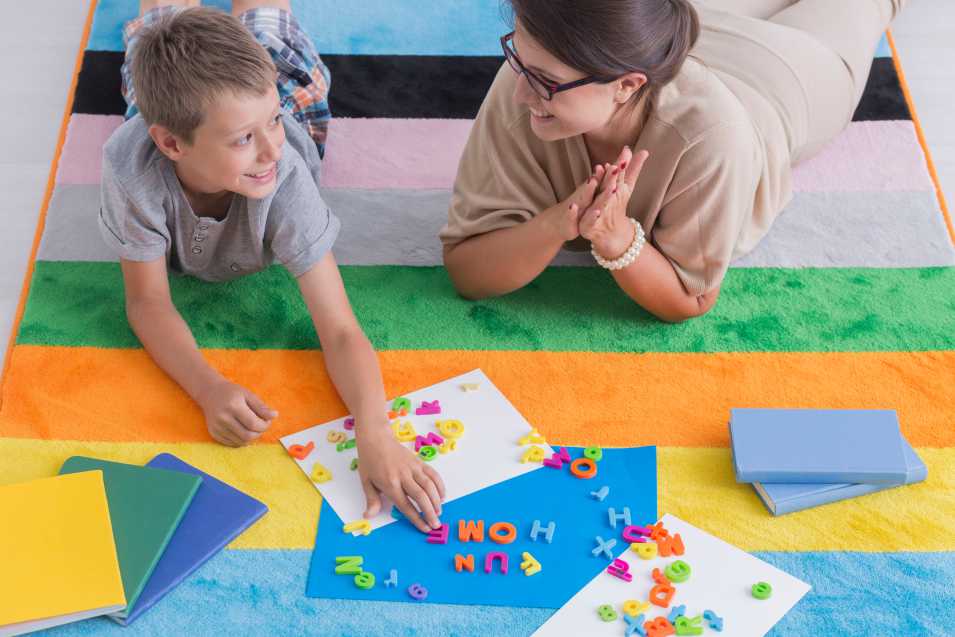Adlerian Play Therapy; Using Adlerian play therapy, therapists can explore a child’s patterns of thinking, feeling, and behavior to gain insight and understand the problems he or she may be facing.
This can be accomplished through helping the client formulate a lifestyle hypothesis, exploring the child’s behavior and thought patterns, and helping the client cope with feelings of inferiority.
Child’s patterns of thinking, feeling, and behaving
Experiencing a child’s thoughts and emotions is an exercise in itself. Some children require the services of a full-time nanny, while others are lucky enough to live with grandparents. A well-stocked nursery is a must, as is a decent education. A well-stocked library, an active social life, and an active imagination are just as important.
One of the most enjoyable experiences for parents and children alike is the serendipity derived from the interaction between the two. The most successful families are the ones that make a conscious effort to maintain cordial relations with one another. This is particularly true of parents of young children, who are typically the most sensitive of all.
Open dialogue and a sense of communal confidence might help achieve this goal. Using these tools to build a child’s confidence and resilience will pay off dividends as they move into adulthood.
For parents with young kids, the juggling octumetum (and its kinks) can be a tad daunting, but a bit of patience and perseverance will go a long way. The biggest obstacle to overcoming is usually a child’s own ego, which is best mitigated by a little parental guidance.
Adlerian Play Therapy – Formulating a lifestyle hypothesis
Developing a lifestyle hypothesis in Adlerian play therapy involves learning about an individual. The therapist aims to understand the individual’s cognitive, affective, and behavioral aspects. They explore the individual’s family environment, past experiences, and thoughts about events.
The therapist seeks to discover the client’s goals for the behavior he or she is exhibiting. Through this, the therapist can help the client make corrections. The therapist can also help the client become less defensive.
Related Article: Benefits of Camp for Troubled Teens
Adlerian play therapy aims to help children develop skills that will enable them to understand their environments better. This includes developing new skills, learning how to handle challenges, and understanding metaphors during play. The therapist also works to build the client’s social relationships, which will help them make good choices.
In order to formulate a lifestyle hypothesis, the therapist asks the client to imagine a time when they were a child. He or she will also be asked to draw a picture of their school. This will allow the therapist to find parallels between the client’s behavior and that of a puppet.

Helping the client to gain insight
Using techniques such as meta-communication and restatement, Adlerian play therapy helps the client to gain insight into their patterns of behavior. Adlerian therapists believe that a child’s lifestyle develops as a result of both positive and negative experiences.
Adlerian play therapy helps the client to see their patterns as being purposeful. The process helps them develop a strong feeling of community. The client can then be given the tools to change their self-defeating behaviors.
Adlerian therapists believe that people are always trying to achieve goals. They believe that the change process requires active involvement and changes in the client’s behavior.
Adlerian therapists believe the process of change requires a client to become aware of his/her behavior patterns and to actively change them. The process involves examining the impact of past experiences and learning about the client’s thoughts and beliefs about these events. The process also includes reorienting the client to new solutions.
Related Article: Bluefire Wilderness Therapy Reviews
Coping with feelings of inferiority
Adlerian Play Therapy; During the first three stages of treatment, a therapist analyzes the client’s life style. This enables a therapist to guide the therapeutic process.
Adler’s theory of Individual Psychology emphasizes connection over separation. It stresses the need for people to contribute to society. It also promotes social equality. Unlike some other theories, Individual Psychology stresses that people’s true worth is revealed through their actions.
Adlerian psychotherapy aims to reduce feelings of inferiority by bringing people together. It also promotes the idea that people need a sense of belonging. This is achieved by identifying and actively changing behaviors. It also helps people to adjust to changes in their lives.
Adler’s approach to therapy uses early memories to address feelings of inferiority. These memories contain core beliefs about the world and one’s self. The therapist gathers information about the client’s family of origin and childhood. The therapist also gathers information about one’s cultural and religious influences.
Related Article: Psychodynamic Family Therapy
